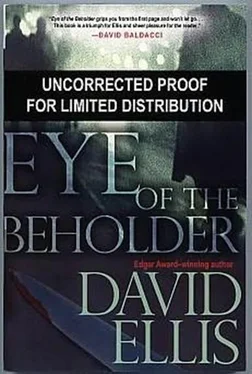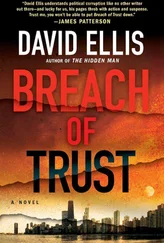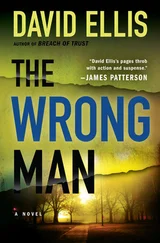McDermott stares at her for a long time without speaking.
“There is some suspicion,” she continues, “that this is why he only served two years in Lefortovo. It was not unheard of for the Soviets to recruit people from their asylums, or their prisons, for this executive action work.”
McDermott raises his eyebrows. “And executive action is?”
“Wet work. Abductions, beatings, torture,” McCoy says. “Maybe murder. Strong-arm stuff. Domestic, mostly. It wouldn’t be uncommon for them to use someone from an asylum with the requisite talents, then throw them back inside. If they try to talk about it, the simple explanation is that these people are ‘crazy.’ They’d be easily discredited. Who’s going to believe a loony tune?”
McDermott looks away, again trying to ignore the remark.
“Oh, shit.” McCoy covers her face. “Mike, I’m so sorry. I didn‘t-”
“Forget it.” He pushes himself out of his chair, shows McCoy his back.
“I’m such an idiot, Mike. How-how is Grace doing?”
He doesn’t answer. It’s not the time to think about his daughter. McCoy cusses herself out again, tries again for the apology, while McDermott works on the information. He thinks about what he found in Koslenko’s basement. The massive documentation about the Bentleys and Paul Riley and Terry Burgos, the photos of the prostitutes.
“You’re telling me,” he says slowly, “that Leo Koslenko was a Soviet operative?”
“I’m using past tense, Mike. There is no ‘Soviet’ anymore. And I’m saying maybe. Look”-she frames her hands-“we’re not talking about a guy who could assassinate a target from a hundred yards away. We’re not talking about a guy who could be trusted with state secrets. But a lot of what the KGB did wasn’t sophisticated at all. It was simply keeping the dissidents in line. Bring them in for some friendly, government-style torture. Shake them awake in the middle of the night and remind them that you know where they live.”
McDermott drops his head. “I’m talking about a guy who can get past a locked door. Who can come in and out without a trace. A guy who knows how to torture for information.”
She nods. “He’d be the perfect candidate. He had mental problems, so deniability would be easy. They’d just put an idea in his head, wind him up, and turn him loose.”
Put an idea in his head, wind him up, and turn him loose.
“This conversation never happened,” she reminds him. “No foolin’.”
Right. The government doesn’t want to admit it let a psychotic into the country. There can be no blowback, she’s saying. That’s why McCoy came herself to tell him, and why she needs the A-file back. Because no one was supposed to tell him any of this. It could mean her job, if it came out.
“So the Soviets taught this guy how to torture and kill and sent him here.”
“What I’m hearing,” she replies, “is that the Koslenko family had serious sway in the government. They got wind of what he was doing and got him out. They played it like he was a political dissident unfairly accused of a mental disorder to silence him. And like you already know, he had help on this side.”
“Great. That’s a real consolation.”
“Mike, none of this came out until the nineties, and, even then, it wasn’t something we could prove. And, look, from what we knew, this guy had been a good citizen while he was here.”
A good citizen. A good citizen, that is, until someone put an idea in his head, wound him up, and turned him loose.
McDERMOTT STANDS in the conference room, his head against the wall. “I’m thinking, that’s what I’m doing,” he says before Stoletti can ask.
“Professor Albany’s here, Mike. What did the fed tell you?”
McDermott gives Stoletti the Reader’s Digest. She takes a seat as she listens. He ends with the reminder, nobody can know about this. “McCoy put her ass on the line to tell me.”
“A KGB henchman,” she says. “Holy Christ.”
McDermott pushes himself off the wall. “It explains his proficiency. We’re looking at a professionally trained paranoid schizophrenic.”
One of the detectives, Williams, pokes his head in. “Mike, Paul Riley’s on the phone.”
“Okay, tell him-”
“He says it’s urgent, Mike,” says Williams. “You should probably take it.”
“THE GUY IN THIS PHOTO is named Leo Koslenko.” Riley shows them the photo, points at the tough guy in the background. “He was an immigrant laborer for the Bentleys.”
McDermott isn’t sure how to play this. He’s off guard here, in every way. He didn’t sleep a wink last night and feels the effects, the fuzzy brain, dirty clothes, heavy eyes. Maybe he should feign surprise, but neither he nor Stoletti has the spirit for it.
Riley’s no dummy, anyway, reading their expressions. “You know this,” he says.
“Just found out. We raided his house a few hours ago.” He nods in acknowledgment at Riley. “He left his prints on Brandon’s door, like you said.”
“He has a sheet,” Riley says. Otherwise, prints would be useless. He waits for the details but the detectives keep mum.
Stoletti says, “Tell us about this Gwendolyn Lake.”
Brandon Mitchum had mentioned her last night, too.
Riley says what he knows. Cassie’s cousin, orphaned wild child, flying around the globe, mingling with the rich and famous. Yesterday, Riley says, he visited her up north, had a follow-up with her this morning. She told him about Koslenko, who supposedly had a crush on Cassie and may have been mentally unstable. Gwendolyn told him that Cassie was having an affair with Professor Albany. And she told him that Cassie was pregnant near the time she was murdered.
“Someone broke into that medical center to steal the records of the pregnancy,” Riley concludes. “Or the records of the abortion. Or both. It must be Albany, right?”
McDermott still plays it coy, giving nothing. He knows all of this now, and more. He knows that Leo Koslenko has a thing for killing prostitutes-or girls who look like prostitutes, in the case of the woman at the hardware store. He knows that Koslenko had a note in his bedroom drawer that was obviously written for Professor Albany, probably back during the time of the murders, threatening him to keep quiet about Ellie Danzinger’s affair with Harland Bentley.
Does Riley know that Harland Bentley was sleeping with Ellie Danzinger?
When Riley’s finished, McDermott glances at Stoletti. Both of them are wondering about Riley, whether to share with him, whether Riley is on their side.
No way that Riley killed these people. Koslenko looks like the guy, every way you view it. But someone wound him up and turned him loose, to use McCoy’s phrase, and the identity of that person is of particular interest. Harland Bentley’s not a bad bet, but Riley works for Bentley.
It looks like Riley saved Brandon Mitchum’s life, but, then, maybe he knew Koslenko was headed there.
He thinks about that. Maybe Riley knows what’s happening but he can’t say so, because of attorney-client privilege or something. Maybe he’s trying to stop the murders without breaking any confidences.
“You figure Albany’s dirty here?” he asks Riley. “You think he’s killing a bunch of people now because he doesn’t want anyone to know he knocked up Cassie Bentley?”
Riley shrugs, exasperated. “I don’t know what else it could be.”
McDermott bursts out a small laugh. “You can’t think of any other reason?”
“Give me a better one,” Riley challenges.
McDermott smiles at him. Nothing doing. Not yet, anyway. “So tell me about these notes. This code.”
Silently, McDermott cusses himself out. These notes contained a code? He wasn’t even looking for one. He thought the ramblings of a madman were nothing more than that.
Читать дальше












